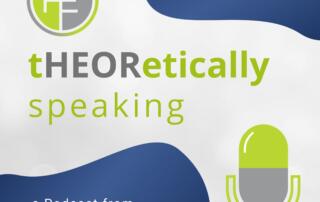tHEORetically Speaking
Pain Points Associated with Analyses of Real-World Data Sources: A Survey
To inform an upcoming ISPOR 2024 workshop, David Thompson of Rubidoux Research is fielding a brief survey to solicit data from healthcare researchers involved in the analysis of secondary sources of RWD (primarily claims and electronic health records [EHRs]) to generate real-world evidence. It encompasses a range of issues [...]
Can We Trust the Data? The Case for Validation
Real world research has produced recent newsworthy findings on topics as diverse as COVID, mental health, cancer, and dementia. But much of the published RWE, even among studies that end up in headlines, doesn’t include crucial information readers need to know in order to trust the results—by that I [...]
Total System Value™ – A DYNAMIC APPROACH TO VALUE DEMONSTRATION
HEOR Ltd. have been working on an exciting new framework called Total System Value™. This episode of tHEORetically speaking features their CEO Phil McEwan and CGO Jeff Anderson to talk to us about this dynamic approach to value demonstration.
Shifting the Paradigm to Pragmatic Evidence Generation
By: Richard Gliklich, MD, OM1 & Sonja Wustrack, MPH, OM1 Integrated Evidence Generation Integrated evidence generation (IEG) is a framework for generating evidence to support decision-making in healthcare. IEG leverages a) existing real-world data sources; and b) new data collection to generate evidence that is ‘fit-for-purpose’[i]. This means that the [...]
FDA Issues Draft Guidance Recognizing the Role of Real-World Evidence in Learning More about Populations Underrepresented in Clinical Trials for Drugs and Biological Products
By: Ulka Campbell, Head of Scientific Strategy, Aetion Of the many potential use cases for real-world data (RWD) and real-world evidence (RWE), one of the most important is improving the information available about how medical products work in populations that have been historically underrepresented in clinical trials. Striving [...]
The Future of Diversity in Clinical Trials: Real-World Evidence
This episode of tHEORetically Speaking features real-world evidence experts Alexandrina Balanean, Parisa Asgarisabet, and Danielle Gentile from Cardinal Health discussing the problems caused by lack of diverse representation in clinical trials.
Global Planning to Local Execution Market Success
Moving beyond static evidence development to ensure local market access success; responding to recent changes in governmental drug regulations and the role of automation Written by Grammati Sarri and Radek Wasiak The worldwide drug regulation landscape is rapidly changing. The introduction of the EU health technology assessment (HTA) Regulation [...]
Persistent Gender Pay Gap in Healthcare and Academia Despite Legislation Efforts
Despite laws to eliminate sex-based wage disparity, women continue to experience pay inequality across all industries, prominently in healthcare. Women, making up two-thirds of the global healthcare workforce, were paid an average of 82% of what men earned in 2022. The gender pay gap is more [...]
Ongoing Medicare Privatization Will Hurt Pharma As Much As the IRA
The pharmaceutical industry is in a frenzy over the recently released list of the drugs subject to price negotiation under the Inflation Reduction Act of 2023 (IRA) and the Act’s potential impact on profits. But an even bigger force has been slowly transforming Medicare in a way [...]
Leveraging Real-World Data for Precision Obesity Treatment
Today's episode of tHEORetically speaking features Gary Curhan, Chief Medical Officer and Jessica Paulus, Vice President of Research at OM1, as they answer questions on Leveraging Real-World Data for Precision Obesity Treatment.
Get to know LexisNexis Risk Solutions
Supplier Spotlight® highlights the unique skills and services offered by organizations that are part of our CONNECTED COMMUNITY™. Recently, we spoke with LexisNexis Risk Solutions which supports the biopharma industry by offering scientific data solutions and consultancy centered around regulatory expertise. Check out the interview below and visit LexisNexis Risk Solutions. What is [...]
The hēRo3 Revolution: Accelerating and Empowering HEOR Analytics with Cutting-Edge Digital Solutions
In this interview with Chad Rose, General Manager of hēRo3, he explains how biopharma is incorporating critical HEOR insights into decision-making for early pipeline assets. Why is there a need to revolutionize the way HEOR insights are used in the decision-making process? Now more than ever, there [...]
Three Considerations to Expand Physicians’ Bandwidth and Improve Real-World Safety Reporting
The ever-expanding field of pharmacovigilance highlights the importance of identifying and tackling problems with real-world safety reporting. Despite this drive to improve healthcare, overtaxed healthcare providers face a current real-world safety reporting process that is too burdensome. For example, researchers reviewed 29 studies and identified four priorities to [...]
AI Miracles Won’t Transform Healthcare … But Another Miracle Will
Barely a day goes by without a headline touting how some new generative AI system will transform our lives by detecting cancer, expediting diagnosis, or helping doctors provide better care. But I’d bet my house that none of these claims will turn out to be true. ChatGPT, Google [...]
Podcast Q&A: The Benefits of Linking SDOH with Other Real-World Data
This podcast segment features the Q&A from Magnolia Market Access’ April 6, 2023 webinar with HealthEconomics.Com. In this episode of tHEORetically speaking, join Dr. Pamela Landsman-Blumberg from Magnolia Market Access and Dr. Rick Chapman from Innovation and Value Initiatives as they answer questions on the importance of social determinants [...]














